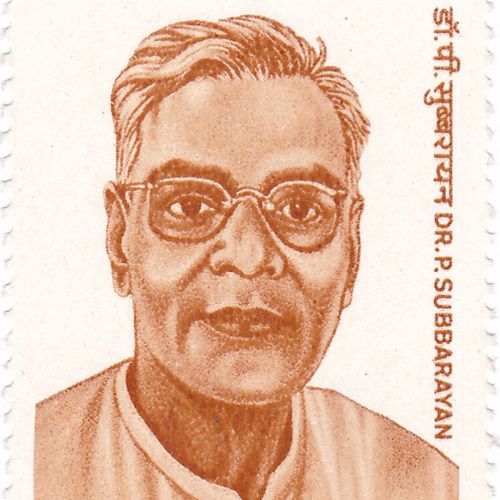Early Life:
Paramasivan Subbarayan was born on 11 September 1889 in Tamil Nadu. He graduated from Presidency College Madras and then pursued his M.A. at the University of Oxford. Subsequently, he obtained an LLB from the University of London and an LLD from Trinity College, Dublin. He worked as an advocate in the Madras High Court.
Role in India’s Independence Movement:
Subbarayan started his political career as a Member of the Justice Party. Subsequently, he quit the Justice Party and was supported as an independent candidate by the Swarajya Party. He later joined the Indian National Congress in 1933. He was a member of the Madras Parliament (1921-1949). He was elected as the Chief Minister of Madras (1926-1930).
Contribution to Constitution Making:
Subbarayan was elected to the Constituent Assembly from Madras on a Congress party ticket. He made important contributions to the debates on adult franchise, civil services, rule of law and the offical language.
Later Contributions:
Subbarayan was a member of the Rajya Sabha (1954-57). He was appointed as the Governor of Maharashtra in 1962.
He submitted a dissent note to the First Official Language Commission constituted in 1955 titled “Minute of ‘Dissent” advocating for English as the official language. He proposed English as it was considered a convenient medium in non-Hindi speakings States and was a window to knowledge. He believed English would help provide access to a global knowledge pool.
He actively worked on Dalit rights issues. He was on the Provincial Executive Committee of the Tamil Nadu Harijan Sevak Sangh. During his tenure as Chief Minister of the Madras Presidency, a number of legislations were introduced to abolish untouchability and promote education.
Subbarayan passed away on 6 October 1962.
In 1989, India Post issued a stamp to honour him.
- Subbarayan was a strong proponent of adult franchise. He believed that illiteracy should not be a ground for disqualifying voters in India.
- He defended the civil service and emphasised its importance in governance.

